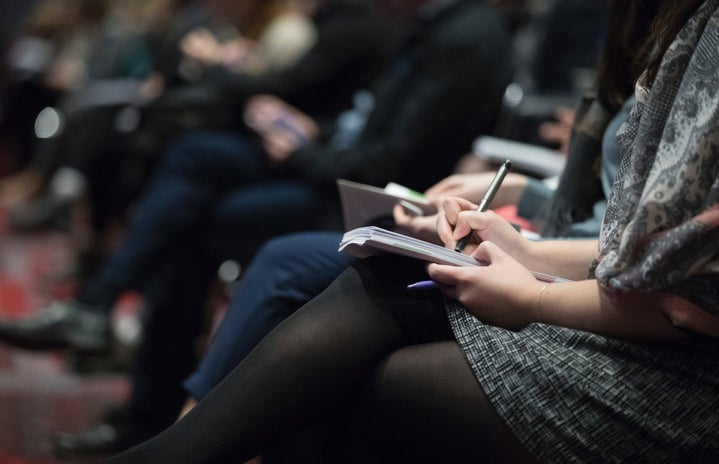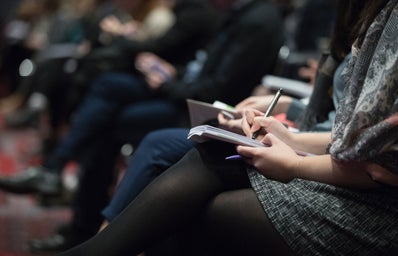ARTICLE BY DYLAN JAFFE
Professor Susannah Heschel of the Jewish Studies Program at Dartmouth College spoke at University of Maryland on Nov. 1, exploring issues with anti-semetic propaganda and its devastating effects on the Jewish community.
The Bahá’í Chair for World Peace, an organization focused on enlightening students to investigate issues like climate change, racial and socioeconomical issues, and advancing discussion surrounding world peace, held a lecture regarding the impact of anti-semitism and its damaging effects on the Jewish population in Adele H. Stamp Student Union.
The lecture focuses on how common anti-semitism has become, although so overlooked in today’s society. Heschel examined this topic by elaborating the stereotypes and attacks on the Jewish community dating back to centuries ago and how they are continued today.
According to Heschel, stereotypes dated back to the 12th century characterized Israelites as a population who murdered Christian children and used their blood for Matzah, a traditional Jewish food made up of only flour and water. British historian, Hugh Trevor Roper, argued that Jewish people must have done something to provoke centuries of anti-semitism. These examples were only the tip of the iceberg of what Heschel described when diving into the deep end of how anti-semetism has been prevalent.
“I want to emphasize that anti-semitism has a life of its own,” said Heschel. “The soul of a swastika conveys instant contempt, degradation and horror to Jews and non Jews; while the perpetrators feel they’ve done something.”
The continuous shame the Jewish population faces on a day-to-day basis is not new. Many paint the community as demonic and cannibals. While anti-semetism dates back to centuries ago, in more recent times, some still strongly believe that since prominent figures have found arguments for anti-semitism, perhaps Hitler had a reason to gas six million Jews in the Holocaust, according to Heschel.
According to Heschel, in an Egyptian Weekly newspaper written in October of 1989, an author wrote, “It has now become clear that perhaps Hitler did have justification for gassing the Jews. Because if the Jews were alive, had freedom of action, they would have eaten others.”
Lulu Canaan, a member of the Jewish community and a sophomore communications major at this university, says stereotypes allow more people to be anti-semetic.
“They give people a misconstrued view of what Jewish people are actually like and just leaves more room for anti Semitic people to hate on us in emotional and physical ways,” Canaan said.
According to the College of Information Studies, 20% of this university’s undergraduate population is Jewish.
Canaan also says that being a part of the large Jewish community at UMD should make her feel safe. However, in the midst of West’s anti-semetic remarks, the administration has not done their best to make members of the Jewish population feel reassured at school.
“Sometimes I think anti-semitism gets buried in the larger discussions, so I think it’s always important to keep it at the forefront of our discourse and conversations,” said Professor and director of Bahá’í Chair for World Peace, Hoda Mahmoudi.
Mahmoudi believes that students on social media should take action when anti-semtism is prevalent online.
Recent outbursts of anti-semetic comments made by rapper Kanye West have caused significant damage for his impressionable fans. Mahmoudi said it is important for students to speak up in light of recent events to put an end of anti-semetic propaganda as this damage is “colossal.”.
“If we remain silent, these things will continue to increase in volume and fuel potential individual negative and even violent reactions. But I think people on social media, especially as I said, younger people can respond to such rhetoric by saying no, no, we’re not going to put up with this. This is wrong,” said Mahmoudi.
“They should have sent an email to alert their students and to acknowledge it and to make the Jewish population feel comforted because as I said before, UMD does have a large Jewish population, but I just feel like I haven’t seen them speak up about it,” said Canaan.
Additionally, Stella Hudson,a graduate assistant working with the Bahá’í Chair organization, claims the University of Maryland, as an institution, has never reacted swiftly or put out a powerful statement as fast as they should be.
“I know that groups within the university have made statements and put things out which I think are really important. But the administration as a whole I don’t think necessarily as always, are fast as they could be making comments about things like this,” said Hudson.
While there have been numerous recent cases of anti-semetism and West is receiving backlash for his comments, the Bahá’í Chair for World Peace continuously works to address societal issues and inform university students about problems that tend to be suppressed.


